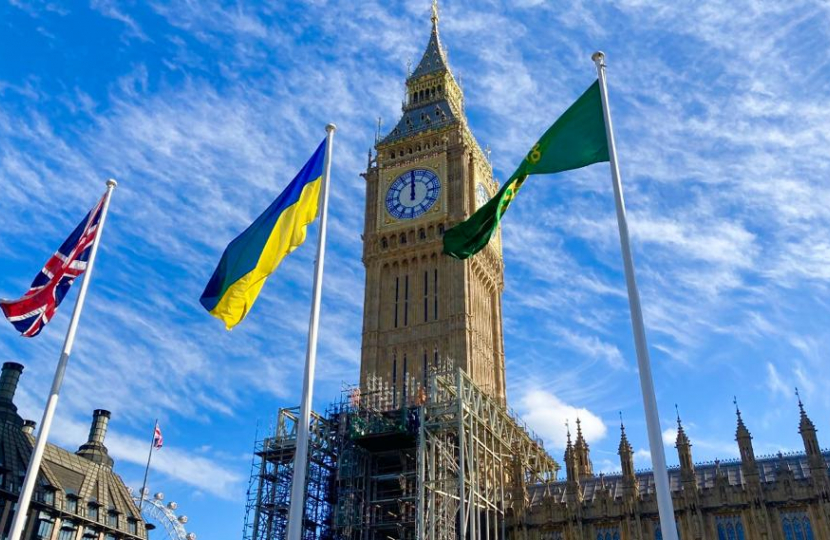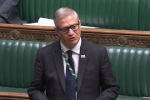
Romford M.P. Andrew Rosindell supports the cross-Party group of over 140 parliamentarians calling on the government to create a fast track visa scheme for Ukrainian students and academics.
There has been a comprehensive package of support for those fleeing Ukraine but academia is one area in which the UK visa system can be expanded.
It is necessary to support the thousands of students and academics that have been disrupted and displaced by Russia’s illegal invasion and occupation of Ukraine.
Students studying core subjects such as engineering and medicine must be able to continue their studies, as their skills will be vital in reconstructing Ukraine.
“It is important that President Putin’s narrative that Ukraine is not a country is challenged collectively in academic discourse” and that Ukrainian civil society and civic identity are preserved.
Western institutions provide the necessary support to education providers, including universities and the Council for At-Risk Academics, to match academics with suitable British institutions.
There are now calls on the Government to expand the £3 million offered through the ‘Researchers at Risk’ programme to support domestic institutions, and the Ukrainian students and academics brought into the U.K. through the fast-track visa route.
The visa scheme will provide a temporary sanctuary for “people of high social and human capital, all or most of whom will want to return to Ukraine to help rebuild Ukrainian civic institutions, politics, culture and economy”.
The move has also been supported by Universities UK, an organisation that represents 140 of the UK's universities.
Key signatories include former Education and Employment Secretary Lord Blunkett, Sir Ed Davey M.P., Leader of the Liberal Democrats, Sir Jeffrey Donaldson M.P., Leader of the DUP and Tom Tugendhat M.P., Chairman of the Foreign Affairs Committee.
Andrew Rosindell M.P., who organised the letter commented:
“It is vital that those within the education sphere can continue their work, they must be given the opportunity to continue their education and output to rebuild Ukraine after the war.
As a country, we have always stood up on the side of freedom and for what is right, and we must do so again today. Where we can help the most, we should.”
Vivienne Stern M.B.E., Director of Universities UK, added:
“Universities UK is pleased to see the UK Government support for Ukrainian academics at risk along with the announcement of hardship funding for Ukrainian students in England.
We are now backing this call for the government to go further in supporting those affected by the war in Ukraine, including by making it easier to unlock opportunities in higher education.”
The Rt. Hon. Lord Blunkett, former Secretary of State for Education and Employment, who supports the letter, said:
“Millions of the Ukrainian people have lost so much. It would be a tragedy if the young people who form the future for rebuilding the country and offering the powerhouse of innovation and creativity were to be denied the continuation of their education and research opportunities because of the actions of President Putin.
Offering the opportunity to resume learning with appropriate support in the UK’s higher education system is just one small, but important, step in making our commitments to the Ukrainian people a reality.”




